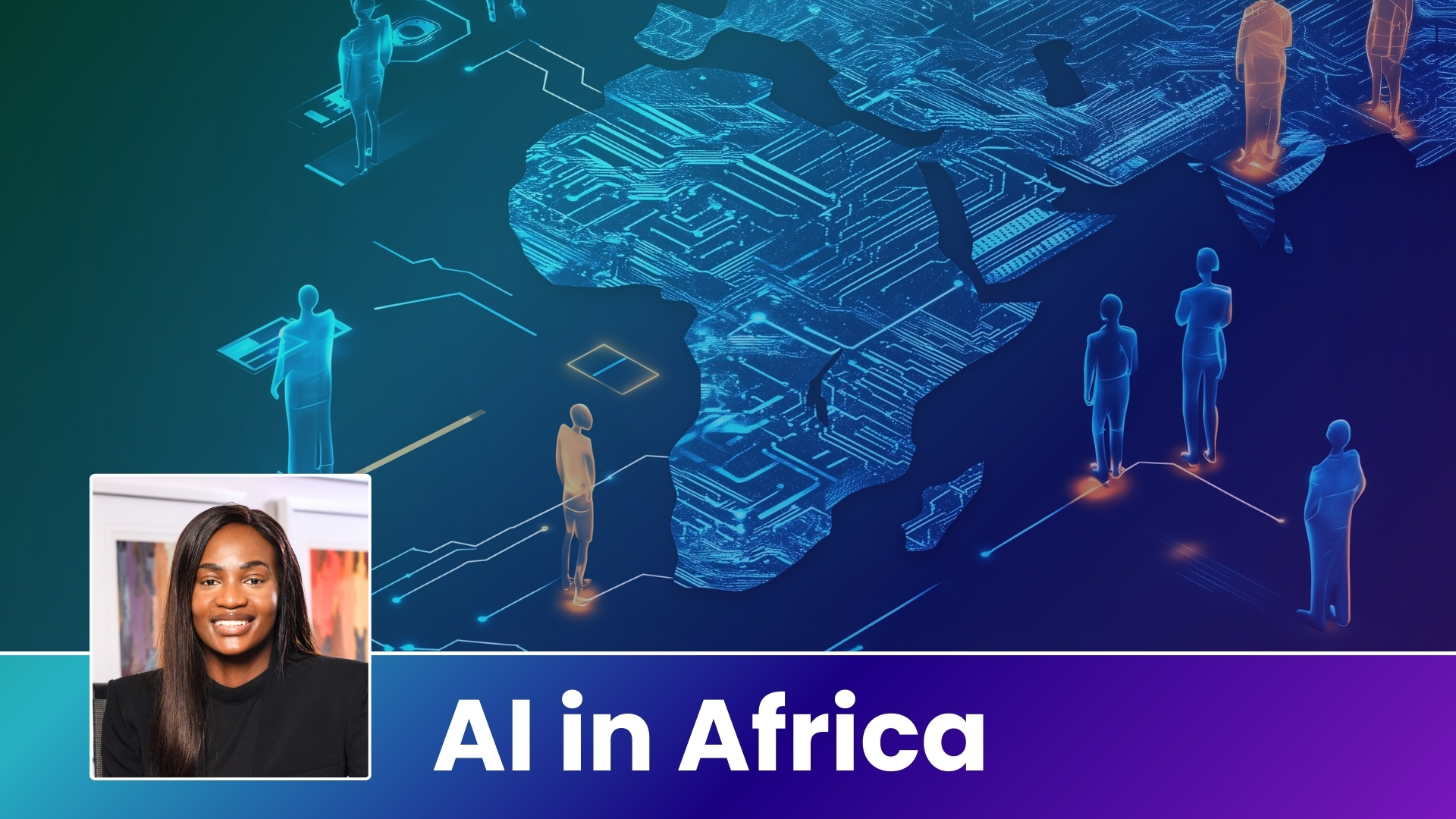
A Unique AI Conversation for Africa.
By Hlengiwe Mtetwa
By now we all know artificial Intelligence (AI) is no longer a futuristic concept—it is actively reshaping industries worldwide. However, the discourse around AI in Africa takes on a unique character, intersecting with infrastructure challenges, regulatory gaps, digital inclusion efforts, and the continent’s broader socioeconomic realities.
At the AI in Africa Workshop, hosted by ACGC and sponsored by Clifford Chance and Microsoft, these complexities took center stage. The workshop offered a deep dive into AI adoption within legal teams, cross-sector applications, and the evolving regulatory framework in Africa. The discussions were not just theoretical; they provided a rare opportunity to assess the continent’s current AI landscape and map out a realistic, Africa-centric path forward.
As Legal Interact, we were proud to contribute to this discussion, bringing our experience supporting AI adoption in both public and private sector legal functions across the continent.
AI in Legal Teams: Why Adoption is Lagging
The opening session honed in on AI’s role in transforming legal departments, showcasing tools that have the potential to revolutionize automated contract drafting, reviewing, legal research, and matter management, promising efficiency gains that could free up legal professionals to focus on high-value advisory work.
Yet, despite the clear benefits, many African in-house legal teams have been slow to adopt AI-driven solutions. This hesitancy is not due to a lack of interest but rather a lack of strategic prioritization. Unlike finance or operations—departments that are often the first to receive investment in automation and AI-powered analytics—legal teams are frequently viewed as cost centers rather than value drivers. This outdated perception restricts AI integration, even when the potential return on investment is clear.
To break this cycle, legal departments must be repositioned as integral strategic partners within organizations. AI adoption should not be treated as an experimental add-on but as a core driver of efficiency, risk mitigation, and business agility, particularly through the use of Intellectual property enriched platforms.
At Legal Interact, we’ve seen firsthand how repositioning legal functions through platforms like Contract Corridor—our AI-powered contract lifecycle management system—has allowed legal teams to shift from reactive to strategic. By embedding automation into contract drafting, approval workflows, and compliance tracking, legal professionals are empowered to deliver greater business value.
AI Use Cases Across Industries: The Transformation Is Underway
Beyond legal teams, AI is already making waves across multiple industries in Africa. The second session explored some of the most impactful use cases, demonstrating how AI is reshaping workflows, improving decision-making, and enhancing operational efficiency. Here’s how:
- Automotive and Manufacturing: AI as the Backbone of Efficiency
AI is streamlining manufacturing and automotive industries through predictive maintenance and automated quality control. In African factories where downtime can be costly, AI-driven systems can predict equipment failures before they occur, allowing companies to schedule proactive maintenance instead of reacting to breakdowns.
Similarly, AI-powered computer vision is transforming quality control. Instead of relying on manual inspections—prone to human error—AI systems analyze production lines in real-time, identifying defects with unparalleled accuracy. This not only improves product quality but also reduces waste and boosts profitability.
- Public Sector: Data-Driven Decision Making
Governments and public sector institutions in Africa are increasingly leveraging AI to improve service delivery. One powerful example is the use of natural language processing (NLP) tools to analyze vast amounts of legal and policy documents. These AI systems can identify inconsistencies, track regulatory changes, and enhance governance transparency.
Another compelling use case is fraud detection and legal spend management in public procurement. AI models trained on historical data can flag suspicious transactions, helping authorities combat corruption and improve accountability in government spending.
Legal Interact’s conversations with the public sector, especially through our AI-enhanced Contract Corridor platform, has demonstrated how structured contract governance and AI-driven analytics can significantly reduce compliance risk while increasing transparency in procurement processes.
While AI’s potential is undeniable, the regulatory landscape in Africa is still playing catch-up. AI development is advancing at a rapid pace, often outstripping the ability of regulators to provide clear guidelines. The third session of the workshop addressed this critical issue, underscoring the need for proactive legal leadership in shaping AI governance.
One of the key takeaways was that businesses cannot afford to wait for regulators to catch up. Legal professionals must take a leadership role in establishing best practices for AI governance, ensuring ethical use and mitigating risks even in the absence of formalized laws.
At the same time, a word of caution was raised: African AI regulation should not simply copy-and-paste global standards. While harmonization with international frameworks is crucial, overregulation could stifle innovation. Instead, Africa needs a balanced, homegrown approach—one that ensures legal certainty for AI vendors and businesses while fostering an environment where innovation can thrive.
This aligns with Legal Interact’s own approach to developing AI tools such as My AI Lawyer—a chatbot solution designed to provide legally accurate, accessible guidance within South African regulatory contexts. Our goal is to demonstrate how responsible AI can expand access to justice without compromising on governance.
The fireside chat brought together key industry leaders, including Mr. Dumisani Sondlo tasked with spearheading South Africa’s AI policy framework from the Department of Communications and Digital Technologies. One of the most striking insights from this discussion was the urgent need to shift focus from what AI developers and innovators should not do to what AI can and should be doing for Africa.
Instead of approaching AI with a risk-first mentality, policymakers and industry leaders must prioritize innovation. AI has the power to drive access to legal services, enhance automation, and expand inclusion—but only if we allow it to. African nations have the opportunity to be pioneers in ethical AI development, crafting solutions that directly address local challenges rather than simply adopting foreign-built models.
Another crucial takeaway was the need to ensure AI regulation is not excessively burdensome. While aligning with global best practices is essential, overregulation could hamper Africa’s ability to compete on the global AI stage. The focus should be on enabling innovation while still implementing responsible safeguards.
This balance is at the heart of Legal Interact’s product development and engagement model—designing scalable AI tools that are built for African realities, backed by years of insight into how legal teams across sectors are navigating digital transformation.
The AI in Africa Workshop underscored a crucial reality: AI adoption in legal teams and beyond is not a matter of willingness but a matter of prioritization. Legal departments must step up as strategic partners, driving AI integration rather than waiting for it to be imposed from the top down.
Cross-industry applications of AI are already transforming the continent, but challenges such as structured data limitations and regulatory uncertainty must be addressed for AI to reach its full potential. The message was clear—African AI solutions must be tailored to local realities.
Finally, the workshop served as a clarion call for AI developers, legal professionals, and policymakers to collaborate. Instead of fixating on AI’s risks alone, the focus must shift toward maximizing AI’s opportunities for Africa’s unique landscape.
As Legal Interact, we are committed to being part of this journey—through our platforms, partnerships, and people—by enabling AI that serves, includes, and evolves with Africa.
With the right investments, strategic thinking, and regulatory foresight, AI can become a catalyst for economic transformation across Africa—and legal teams, rather than lagging behind, should be leading the charge.






